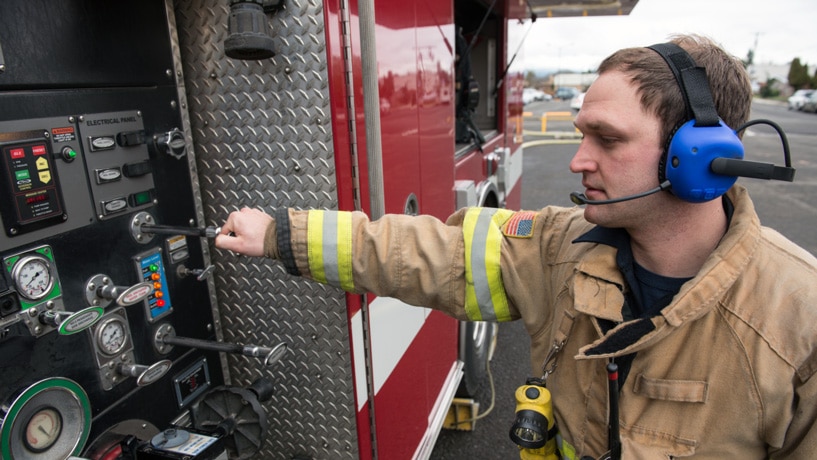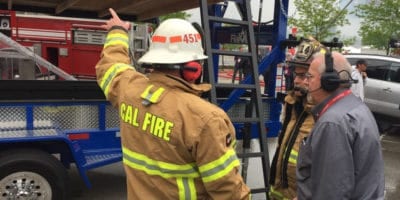Wireless Communication Technology in the Fire Service

ADVANTAGES OF WIRELESS COMMUNICATION TECHNOLOGY FOR CRITICAL COMMUNICATIONS
There are many recent and near-term advances in two-way communication technology. Today, fire services personnel are leveraging, expanding and exploiting these platforms, which is critical to the success of radio, intercom, Voice over Internet Protocol (VOIP) and other robust emergency communication systems.
One area of focus is enhanced wireless connectivity for devices (including Bluetooth). As a result, user-friendly Internet of Things (IOT) tools are rapidly becoming part of the global fire and life safety industries.
When emergency responders are involved in catastrophic accidents, the post incident analysis often points to preventable events. Usually breakdowns in communications are listed as a predominant cause. Wireless systems have been identified as one technology that can provide an exponential improvement in communications.
CURRENT WIRELESS COMMUNICATIONS
The capabilities of today’s hands-free communications systems are enabling many new advances including:
- Voice User Interfaces for command/tactical channels, cell phones and landlines
- Computer integration for internet searches, tablets and mobile data systems
- Voice-to-text and text-to-voice communications
ADVANTAGES OF WIRELESS COMMUNICATIONS TECHNOLOGY
Wireless systems allow for swift deployment and immediate engagement with responder unit personnel, incident management and responders assigned to tactical channels. The benefits of wireless headsets include hands-free operation, extended battery life, secure and discreet communications, and hearing protection. Wireless headset systems also provide comfort, even on longer duration incidents. With some wireless systems offering ranges in excess of 1,500 feet, crisp communications over large areas is possible.
Various wireless headset systems are available, notably Firecom’s offerings, which allow for noise cancellation through enabling volumetric control of conversations and ambient background sound. With the advent of stereo listen-through microphones, Firecom’s products enable units to maintain verbal communication with improved voice clarity, while offering adjustable situational awareness and advanced hearing protection. These Bluetooth enabled systems also allow for the linking of phones and a variety of mobile devices. Virtually all portable radios are compatible with Firecom’s wireless systems.
CONVENIENCE OF WIRELESS
Why wireless? The advantages of wireless communications headsets include:
- Superior audio quality
- Hands-free operation
- Situational awareness
- Advanced hearing protection
THE FUTURE OF WIRELESS COMMUNICATIONS
As the roles and responsibilities of fire services personnel continue to expand, advanced wireless and IOT enabled devices are more important than ever before. These systems are poised to provide:
- Timely, reliable, secure and clear communication
- The ability to stream large data sets
- Hardened and robust features
Requisite standard certifications such as FCC, FAA, ANSI, UL, NIST, NFPA, DOT and related critical communication licensing
The capability to offer these advantages via wireless technology is expected to drive a rapid change in what is possible. For the fire service this means that communications will continue to improve, keeping responders and the public informed, on time and in-touch when it counts.


